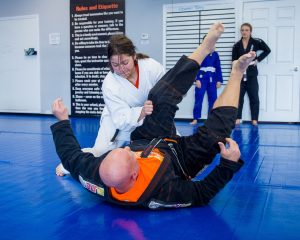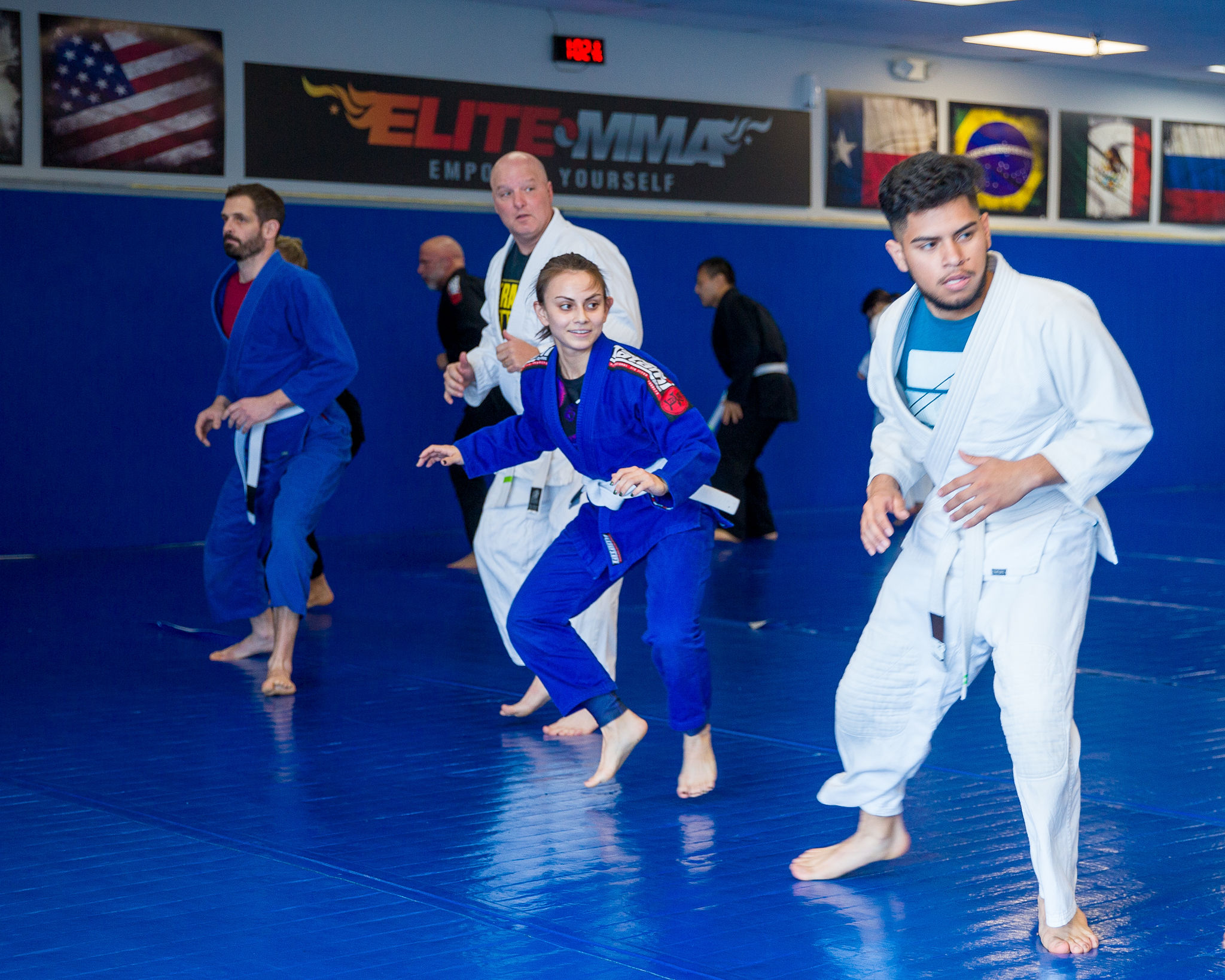Brazilian Jiu Jitsu is one of the fastest growing martial arts in the world, and by far the most fascinating for its addictive properties. Though not the most intense, extravagant or bizarre martial art, it is undoubtedly intriguing because of the way it can allow a smaller individual to overcome a bigger and stronger opponent. Not many other martial arts can make this claim.
Though other martial arts in Houston, Texas, teach individuals of all sizes how to use their strengths to their advantage, a person who is small but quick may still find it difficult to overcome the sheer brawn of someone who is all muscle. BJJ, however, equips practitioners with the techniques necessary to realistically challenge an opponent regardless of either person’s stature. In a way, the feelings that this type of accomplishment triggers may be a part of what makes the sport so addictive.
Of course, there is more to the psychology of Brazilian Jiu Jitsu than the ability for one to overcome someone larger or more muscular than him or herself. If you’re thinking about taking up the sport — or if you already have and wonder why you’re so addicted to it — you may want to better understand the psychological impact of BJJ.
The Endorphin Rush
Though exercise in general releases endorphins (your feel-good hormones), BJJ releases a particularly large flood of hormones for two distinct reasons. For one, when you grapple, you must fully engage in the process. This means that you must clear your mind of everything other than trying to focus on your opponent’s next move. No thinking about your work problems, or relationship issues or the stress of raising a toddler and a pre-teen. You should try to temporarily forget everything that is bothering you and just be truly in the moment. This type of freedom is exhilarating.
The second reason Brazilian Jiu Jitsu releases so many endorphins is because grappling takes the breath right out of you. As you try to catch your breath, your heart and lungs will work to take in fresh oxygen, which results in the release of endorphins. This occurs naturally after any strenuous exercise, which may explain why people who work out are generally happier.
The Ability To Learn and Improve
One of the main reasons people stick with Jiu Jitsu when they previously failed to keep up with any other training or exercise is because every class offers something new. During each session, practitioners learn a martial art while improving both their minds and bodies.
Unlike going to the gym or joining a CrossFit class, every BJJ session reveals a new technique for solving a problem students have been having. Though other forms of training certainly impart some knowledge and skill, many are limited in terms of how much a person can actually learn.
The Satisfaction of Problem Solving

The Tangible Rewards
Though for many BJJ participants the psychological benefits are reward enough, the art, as in other martial arts, uses a belt system to denote levels of experience or knowledge. Everyone starts with the same belt and then works their way up a tiered system as they develop and improve. Everyone improves at a different rate, which creates that sense of competition humans crave. Each time someone gets promoted; it motivates everyone else to work harder so they too can move onto the next level. As you move your way up the ranks, you will experience that sense of joy and achievement as you receive a belt that symbolizes your hard work and commitment.
There Is No “End”
BJJ is an ongoing learning process. Because there is always something new to learn, practitioners keep returning. Achieving a black belt is not an ending, as it is in so many martial arts, but rather the beginning of deeper learning.
If you want to take up a hobby that grants deeper fulfillment than most others, give Brazilian Jiu Jitsu a try. Sign up for a free session today, and you, too, might just become addicted.

